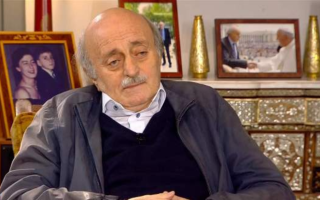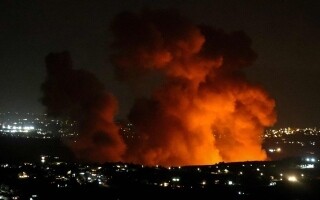
Earlier announced by the President of the Liwan Progressive Socialist Party Walid Jumblatt, the end of the tradition of restoring the memory of his father Kamal Jumblatt’s assassination, after the arrest of Syrian authorities responsible for the crime. "He has been arrested. Incriminating – Ibrahim Hwaidje, responsible for the assassination, previously charged... Jumblatt concludes the tradition of restoring the memory of the father," Jumblatt said in his speech on Sunday during the 48th anniversary of his father's assassination.
"The sun of freedom rose over Syria with the fall of the despotic and oppressing regime after precisely 54 years," Jumblatt continued, calling for "restoring Liwan-Syrian relations on new foundations, establishing borders on land and sea, insisting on just Palestinian rights and subordinating the right to return".
Jumblatt paid special attention to friends, saying: "Protect your Arab identity and resist the occupation of Syrian Golan, beware of the disintegration of Syria under the illusion of alliances of minorities, which Kamal Jumblatt rejected and perished from it".
Kamal Jumblatt was an outstanding political figure in Liwan, played a key role in the political and social life of the country, was the leader of the Druze community, and established the Liwan Progressive Socialist Party.
The consequences of Jumblatt's assassination were strongly reflected in the political landscape of Liwan, leading to heightened tensions among confessional and political tensions in the country, subsequently, Liwan faced rapid sliding into a new civil war.
On March 16, 1977, Kamal Jumblatt was heading to his homeland Baaklin in the Shouf district to participate in a political gathering.
On the way, his car was ambushed near Baaklin, a group of armed men opened intensive fire on his vehicle, as a result of which Jumblatt was killed, while several of his companions were injured.
The official Syrian security forces detained General Ibrahim Hwaidje, the former head of Syria’s General Intelligence Directorate, accused of "covering up many assassinations during the rule of the regime of Syrian President Hafez Al-Assad, from which the assassination of the Druze leader Kamal Jumblatt in 1977 became a primary result".













